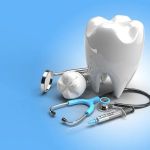Can a Dentist Prescribe Medication?
As someone who has spent a lot of time in dentist chairs and has had several procedures done, I’ve often wondered about the role dentists play beyond just cleaning and filling teeth. A question that often crosses my mind—and one that many patients also seem to ask—is, "Can a dentist prescribe medication?" In this article, I’ll dive into the details about whether dentists have the authority to prescribe medication, the types of medications they can prescribe, and what this means for your dental care.
Understanding the Role of Dentists
Before answering this question, it’s important to understand the role of a dentist. Dentists are healthcare professionals trained to diagnose and treat conditions related to the mouth, teeth, gums, and jaws. They perform various procedures like routine cleanings, fillings, extractions, root canals, and even more complex surgeries. However, their role doesn’t stop at just physical treatment; they also have a significant role in managing the overall health of their patients.
Can Dentists Prescribe Medications?
Yes, dentists can prescribe medications, but there are certain guidelines and limitations in place. Dentists are licensed healthcare providers, which means they are authorized to prescribe a range of medications, particularly those that are relevant to the treatment of dental conditions. This includes antibiotics, painkillers, anti-inflammatory drugs, and other medications to manage oral health problems like infections, swelling, and pain relief.
Types of Medications Dentists Can Prescribe
1. Antibiotics: If you have an infection related to your teeth or gums, such as a tooth abscess or gum disease, a dentist may prescribe antibiotics to help manage and eliminate the infection. Common antibiotics prescribed by dentists include amoxicillin and clindamycin.
2. Pain Relievers: After procedures like tooth extractions or dental surgery, dentists often prescribe pain medications. These could include non-prescription pain relievers like ibuprofen or stronger medications like narcotics (e.g., hydrocodone) for severe pain relief.
3. Anti-inflammatory Medications: Dentists also prescribe medications to reduce inflammation and swelling, especially following surgical procedures. Steroids or anti-inflammatory drugs can help reduce swelling and speed up recovery.
4. Topical Treatments: In some cases, dentists may prescribe topical treatments such as mouth rinses, gels, or creams that can be applied directly to the affected areas inside the mouth. These treatments are often used for conditions like mouth ulcers or severe gum irritation.
When Are Medications Prescribed by Dentists?
Not every dental appointment will result in a prescription. Typically, dentists will prescribe medications when necessary for the treatment of infections, pain management, or after surgical interventions. For example, if you need a tooth extracted, you might be given a prescription for painkillers to help manage discomfort during the healing process. If your tooth infection is severe, antibiotics may be prescribed to fight off the infection.
Limitations of Dentists Prescribing Medications
While dentists have the authority to prescribe medications related to oral health, there are limitations to what they can prescribe. Dentists do not have the authority to prescribe medications for conditions outside the scope of dental care. For example, a dentist cannot prescribe medications for heart disease, mental health conditions, or chronic conditions that require ongoing medical management. They are also generally limited in prescribing narcotics for pain relief, with increasing scrutiny and regulations around opioid prescriptions.
What Should You Do if You're Prescribed Medication?
If your dentist prescribes medication, it’s important to follow the instructions carefully. Take the full course of antibiotics, even if you start feeling better, to ensure the infection is completely treated. For pain medications, use them as directed and avoid exceeding the recommended dosage. Additionally, be sure to inform your dentist about any other medications you're taking, including over-the-counter drugs, to prevent any negative interactions.
Conclusion
So, yes, dentists can prescribe medication, but the scope of their prescriptions is limited to conditions and procedures related to dental health. Whether you’re receiving antibiotics for an infection or pain relief after a procedure, medications prescribed by a dentist play an important role in your recovery and oral health management. As always, it’s essential to follow your dentist’s instructions and be aware of what medications you are taking to avoid complications.







 MGK Dental0.0 (0 review)
MGK Dental0.0 (0 review) Pearl River Family Dentistry5.0 (104 review)
Pearl River Family Dentistry5.0 (104 review) EON Clinics4.0 (24 review)
EON Clinics4.0 (24 review) Dr. Brock F. Tekin, DMD4.0 (169 review)
Dr. Brock F. Tekin, DMD4.0 (169 review) Cooper Family and cosmetic Dentistry4.0 (224 review)
Cooper Family and cosmetic Dentistry4.0 (224 review) Woodlawn Dental Gallery4.0 (537 review)
Woodlawn Dental Gallery4.0 (537 review) The Importance of Oral Health Education During Pregnancy for a Healthy Pregnancy
The Importance of Oral Health Education During Pregnancy for a Healthy Pregnancy Best Tips for Brushing Your Teeth Properly for Healthy Gums: Essential Techniques for Oral Health
Best Tips for Brushing Your Teeth Properly for Healthy Gums: Essential Techniques for Oral Health Why Skipping Dental Checkups Can Lead to Bigger Oral Health Problems
Why Skipping Dental Checkups Can Lead to Bigger Oral Health Problems Advantages of Porcelain Dental Restorations
Advantages of Porcelain Dental Restorations How Can Diabetes Cause Tooth and Gum Problems? Preventing and Managing Oral Health Issues
How Can Diabetes Cause Tooth and Gum Problems? Preventing and Managing Oral Health Issues Healthy Habits for Promoting Good Oral Health and Hygiene: Tips for a Healthy Smile
Healthy Habits for Promoting Good Oral Health and Hygiene: Tips for a Healthy Smile